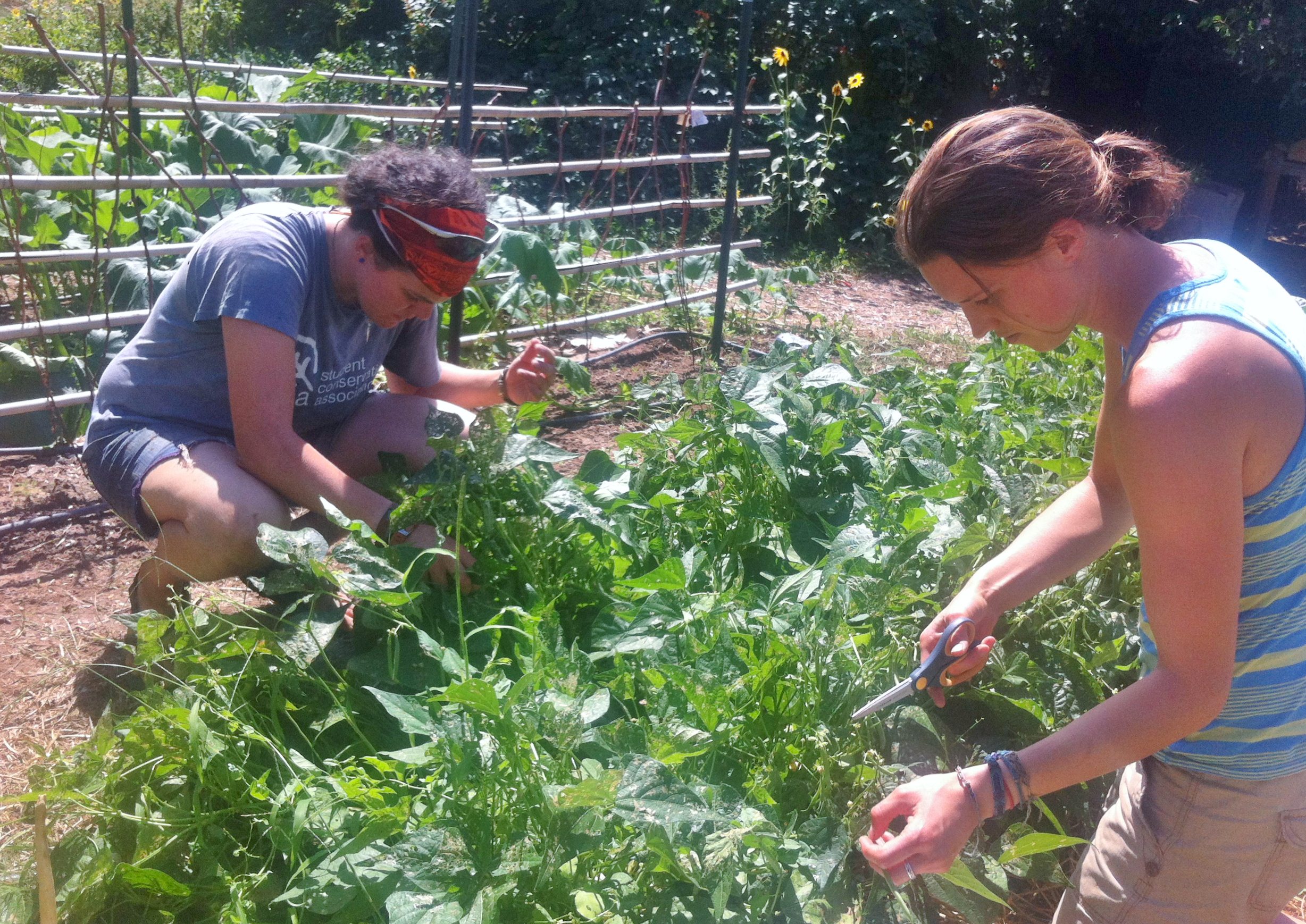Some information may be outdated.
Moab’s first Farm-Chef-Fork Mingle will be held on Monday, Sept. 9 at the Youth Garden Project.
It’s the first, of what organizer Roslynn Brain hopes will become an annual event. It is also the first of six similar events in other Utah towns, as part of a state-wide push for restaurants to use locally grown foods.
Food producers are encouraged to bring 50 bites, or samples, for chefs to try. The event is free, but food producers and artisans must register to participate.
The Utah Farm-Chef-Fork program is funded through the U.S. Department of Agriculture (USDA), and is a result of a collaboration between the USDA, Utah State University Extension – Sustainability, the Youth Garden Project and Slow Food Utah.
Brain said that communication is key to having local producers and chefs work together. She cited the example of Utah restauranteur Ryan Lowder, the owner of Salt Lake City’s Copper Onion Restaurant, who spoke at USU Extension’s Diversified Agricultural Conference in February 2012.
Lowder said that some prospective suppliers show up with their wares during the lunch or dinner rush when he simply doesn’t have time to talk. Or, when he needs a specific ingredient for a particular dish, he doesn’t always know who to contact.
His expression of frustration led the Farm-Chef-Fork program being developed to mitigate the obstacles between producers and chefs.
Brain said this event isn’t only for restaurant chefs, citing kitchens at bakeries, cafeterias, hospitals and schools.
“It is for anyone who prepares food for the public,” Brain said.
Brain, an employee of USU extension, is the state specialist for sustainability. And while she will plan events throughout the state to encourage pro-environment agricultural practices, she is choosing to make Moab her home-base.
She’s moving to Moab to live here full-time in November. In addition to being the state sustainability expert, she will also teach a core class for the sustainability minor at USU Moab.
A big part of her to decision to move here was Moab’s reputation for being community-minded and having progressive non-profits that promote sustainable lifestyles, such as the Youth Garden Project and Community Rebuilds.
Emily Niehaus, the director of Community Rebuilds, is excited about the project.
“We’re helping connect Ros and USU with resources, like our groovy Youth Garden Project,” Niehaus said. “Roslynn Brain is awesome. We’re getting a huge resource.”
Niehaus also donated the time of one of the Community Rebuilds’ interns to assist Brain by recruiting chefs and producers to attend the mingle.
Youth Garden Project, which is hosting the mingle, has set a strong example of how a local food producer can provide ingredients to chefs. It has been providing produce to local restaurants like Desert Bistro, Milt’s Stop and Eat, Jeffery’s Steakhouse, Eddie McStiff’s and the Quesadilla Mobilla. It also provides produce for sale at Moonflower Market and Village Market.
“We been doing it for at least six years,” said Delite Primus, director of Youth Garden Project.
She’s excited about the mingle.
“It’ll be a great opportunity for producers and chefs to connect, and for chefs to see what’s available locally,” she said.
She is excited that this conversation is finally occurring.
“More restaurants are trying to source local ingredients,” Primus said.
Brain’s goal is that a mingle can overcome the issues between chefs and food producers, No. 1 is for food producers to have a better idea of how restaurants work in order to get the food to them in a timely and efficient manner.
“In the spring we designed a training series for producers and chefs to improve communication with each other,” Brain said. “We teach producers ways to successfully market directly with the chef.”
Brain is concerned that smaller farmers may be hesitant to register for an event like this, but she wanted to assure them that there is no need to be intimidated.
“It will be a relaxed environment, much like the farmers’ market, with a table and samples to share,” she said. “It is important to have a business card or contact information available so chefs have a means to contact the farmer.”
And while this is a push for chefs to use more locally produced foods, the Youth Garden Project regularly challenges local chefs to make multi-course meals made with only seasonal vegetables and local foods to be served in the garden itself during their Garden Dinners. The four dinners each summer are fundraisers, with proceeds going to support programming for children.
Their last dinner of the season will be Friday, Sept. 20.
“Ken Moody is the chef,” Primus said. “He does one every year for us.”
While the word “sustainability” isn’t found in the Youth Garden Project’s mission statement, it is a value the non-profit organization has exemplified.
“The concept is part of what we do. We grow food. We teach other people how to do it. We teach kids healthy choices,” Primus said. “We are a resource for community.”
Brains has a second sustainability event later in the month with the Moab Permaculture Workshop to be held at USU Moab on Sept. 20.
“Not only will you learn about permaculture from a leading national expert, but you will help implement a permaculture rain garden at a Community Rebuilds’ strawbale home,” Brain said.
Neihaus uses permaculture principles in the building of straw-bale homes for low-income families in Moab through Community Rebuilds.
“It is a nature-based way to design,” Niehaus said.
Appreciate the coverage? Help keep local news alive.
Chip in to support the Moab Sun News.





